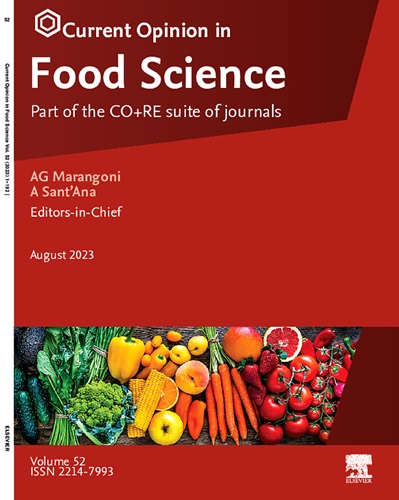Ensuring food safety: microbiological risk assessment strategies
IF 9.1
1区 农林科学
Q1 FOOD SCIENCE & TECHNOLOGY
引用次数: 0
Abstract
Food safety is a critical global priority, as foodborne diseases continue to pose significant public health challenges. Ensuring food safety requires robust food hygiene practices, including effective hazard management strategies. A key tool for managing microbial risks is microbial risk assessment (MRA), which involves hazard identification, hazard characterization, exposure assessment, and risk characterization. Various MRA approaches — qualitative, semiquantitative, and quantitative — are employed depending on available data and complexity. Predictive microbiology, utilizing mathematical models, plays a vital role in simulating microbial behavior under different food conditions, enhancing risk predictions. Advances in molecular technologies, such as multi-omics and metagenomics, alongside rapid detection methods, offer new insights into microbial behavior and improve detection accuracy. Risk ranking tools enable targeted interventions by comparing microbial hazards across different food-pathogen scenarios. Integrating these strategies will improve food safety, reduce the burden of foodborne illnesses, and enhance public health globally.
确保食品安全:微生物风险评估策略
食品安全是一个关键的全球优先事项,因为食源性疾病继续构成重大的公共卫生挑战。确保食品安全需要强有力的食品卫生实践,包括有效的危害管理战略。微生物风险评估(MRA)是管理微生物风险的一个关键工具,它包括危害识别、危害表征、暴露评估和风险表征。不同的MRA方法——定性的、半定量的和定量的——取决于可用的数据和复杂性。预测微生物学利用数学模型,在模拟不同食物条件下微生物的行为,增强风险预测方面起着至关重要的作用。分子技术的进步,如多组学和宏基因组学,以及快速检测方法,为研究微生物行为提供了新的见解,提高了检测精度。风险排序工具通过比较不同食物病原体情况下的微生物危害,实现有针对性的干预。综合这些战略将改善食品安全,减轻食源性疾病负担,并加强全球公共卫生。
本文章由计算机程序翻译,如有差异,请以英文原文为准。
求助全文
约1分钟内获得全文
求助全文
来源期刊

Current Opinion in Food Science
Agricultural and Biological Sciences-Food Science
CiteScore
18.40
自引率
4.00%
发文量
157
审稿时长
92 days
期刊介绍:
Current Opinion in Food Science specifically provides expert views on current advances in food science in a clear and readable format. It also evaluates the most noteworthy papers from original publications, annotated by experts.
Key Features:
Expert Views on Current Advances: Clear and readable insights from experts in the field regarding current advances in food science.
Evaluation of Noteworthy Papers: Annotated evaluations of the most interesting papers from the extensive array of original publications.
Themed Sections: The subject of food science is divided into themed sections, each reviewed once a year.
 求助内容:
求助内容: 应助结果提醒方式:
应助结果提醒方式:


